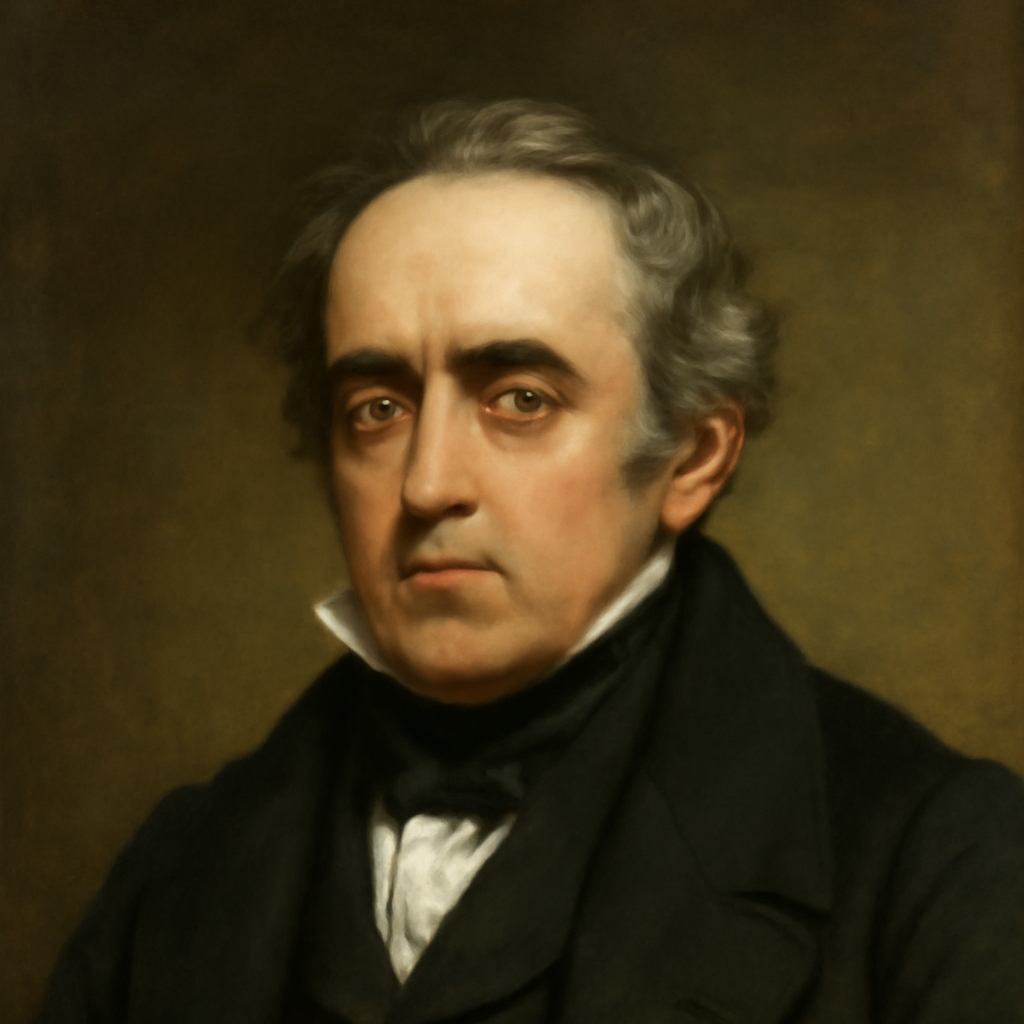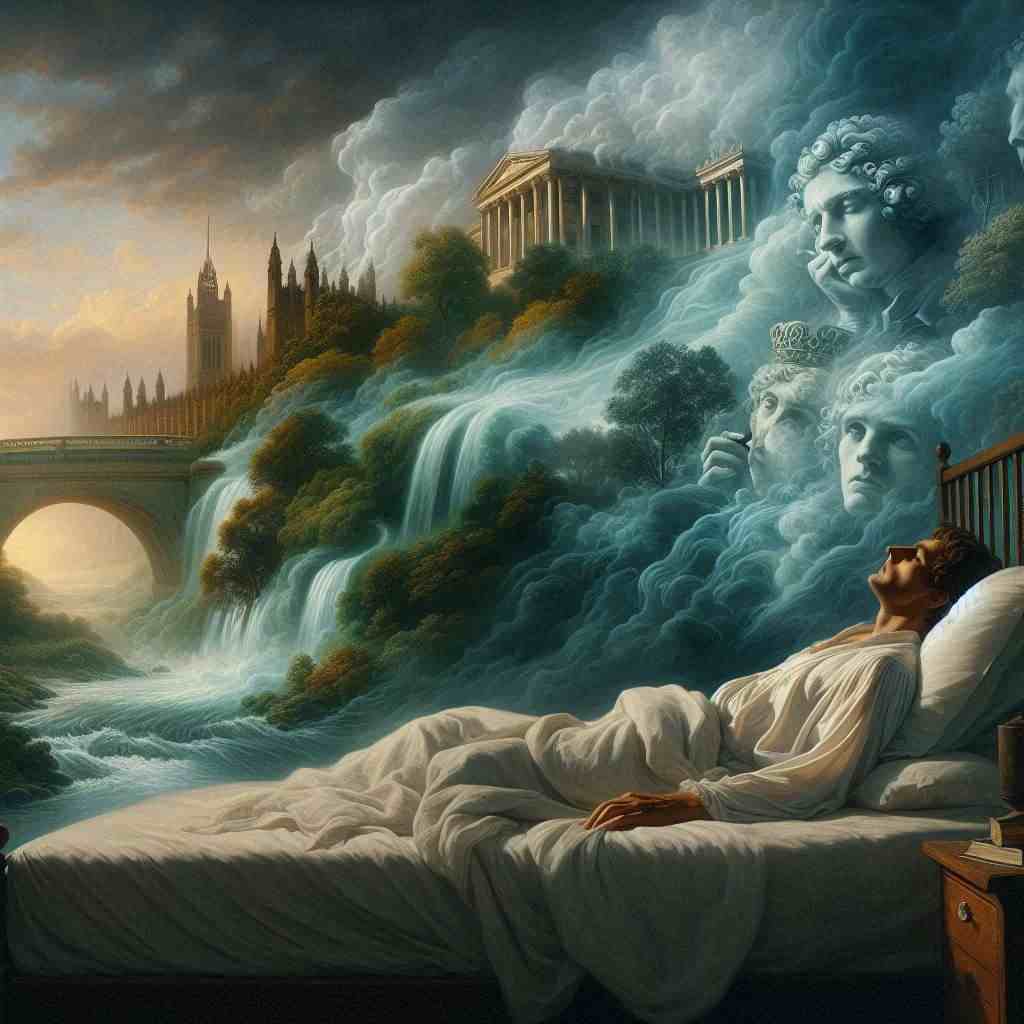1 Poems by Thomas Babington Macaulay
1800 - 1859
Thomas Babington Macaulay Biography
Thomas Babington Macaulay, born on October 25, 1800, in Rothley Temple, Leicestershire, was a towering figure in 19th-century British literature, politics, and historiography. His life and works epitomized the Victorian era's intellectual vigor and imperial confidence, leaving an indelible mark on British culture and beyond.
Macaulay was born into a family of Scottish descent, the son of Zachary Macaulay, a prominent abolitionist, and Selina Mills. His early years were marked by an almost preternatural intellectual precocity. As a child, he devoured books voraciously, displaying an extraordinary memory and a gift for language that would serve him well throughout his life. His father's involvement in the anti-slavery movement exposed young Thomas to some of the leading intellectual and political figures of the day, shaping his worldview and ambitions.
Educated at Trinity College, Cambridge, Macaulay distinguished himself as a brilliant student, twice winning the Chancellor's Medal for English verse. His academic prowess was matched by his oratorical skills, which he honed in the Cambridge Union debating society. These talents would later serve him well in his political career. After graduating, he was called to the bar in 1826, but his true passions lay in literature and politics.
Macaulay's literary career began in earnest with his contributions to the Edinburgh Review, a leading Whig journal of the time. His essay on Milton, published in 1825, catapulted him to literary fame. This piece, with its vivid prose and incisive analysis, set the template for what would become known as the "Macaulay style" – energetic, opinionated, and eminently readable. His subsequent essays on subjects ranging from history to contemporary politics cemented his reputation as one of the foremost essayists of his age.
In 1830, Macaulay entered Parliament as a Whig member for the pocket borough of Calne. His maiden speech on the Reform Bill of 1832 was a tour de force, establishing him as one of the most eloquent voices in the House of Commons. His political career was marked by a commitment to reform and a belief in progress, tempered by a deep respect for British institutions. He played a significant role in the abolition of slavery in the British Empire and the reform of the Indian educational system.
Macaulay's time in India as a member of the Supreme Council of India (1834-1838) was pivotal both for his personal development and for the trajectory of Indian education. His infamous "Minute on Indian Education" (1835) advocated for English-language education in India, a policy that had far-reaching consequences for the subcontinent. While controversial, especially in hindsight, this decision reflected Macaulay's belief in the universality of Western liberal values and the power of education to transform societies.
Upon his return to England, Macaulay continued his political career, serving as Secretary at War and Paymaster-General. However, it was during this period that he began work on his magnum opus, "The History of England from the Accession of James II." Published in five volumes between 1848 and 1861, this work was a phenomenal success, both critically and commercially. Macaulay's vivid narrative style, his ability to bring historical figures to life, and his overarching thesis of England's progress towards liberal democracy captivated readers across the English-speaking world.
Macaulay's "History" was more than just a chronicle of events; it was a grand narrative that presented English history as a story of progress, with the Glorious Revolution of 1688 as its pivotal moment. This Whig interpretation of history, while later critiqued by historians for its teleological approach, was immensely influential in shaping popular understanding of English history for generations.
As a poet, Macaulay is perhaps best remembered for his "Lays of Ancient Rome" (1842), a collection of narrative poems that reimagined key moments in Roman history. These poems, with their stirring rhythms and heroic themes, became immensely popular, memorized by schoolchildren across the British Empire. While not considered great poetry by modern standards, they exemplify Macaulay's ability to capture the public imagination and his talent for narrative verse.
Macaulay's literary output extended beyond his essays, histories, and poems. His speeches, collected and published posthumously, are considered masterpieces of political oratory. His contributions to the "Encyclopædia Britannica," including biographies of Francis Bacon, John Bunyan, and Oliver Goldsmith, showcase his versatility as a writer and his vast knowledge across various fields.
In his personal life, Macaulay never married, devoting himself entirely to his intellectual and political pursuits. He was known for his prodigious memory, reportedly able to recite entire books from heart, and for his conversational skills, which made him a sought-after guest in London's social circles. His relationship with his sisters, particularly Hannah, was close, and much of what we know about Macaulay's private life comes from their correspondence.
Macaulay's later years were marked by honors and accolades. He was raised to the peerage as Baron Macaulay of Rothley in 1857, a recognition of his contributions to British letters and politics. However, his health began to decline, and he died on December 28, 1859, at the age of 59. He was buried in Westminster Abbey, a fitting resting place for a man who had done so much to shape the Victorian understanding of British history and culture.
Thomas Babington Macaulay's legacy is complex and multifaceted. As a historian, he revolutionized historical writing, making it accessible and engaging to a wide audience. As a politician, he was a voice for reform and progress. As an essayist and poet, he exemplified the confident, moralistic tone of Victorian literature. His influence on education policy in India continues to be debated to this day.
Critics have pointed out the limitations of Macaulay's worldview, particularly his Eurocentric perspective and his sometimes uncritical belief in progress. However, his impact on the English language and on the art of historical narrative is undeniable. His prose style, characterized by its clarity, energy, and rhetorical power, set a standard for English non-fiction writing that endures to this day.
In studying Macaulay, we encounter not just an individual but an embodiment of an age – the Victorian era with its confidence, its contradictions, and its lasting impact on the modern world. His life and works continue to offer rich material for scholars of literature, history, and politics, inviting us to engage critically with the ideas and assumptions that shaped the 19th century and continue to influence our world today.
This text was generated by AI and is for reference only. Learn more
Username Information
No username is open
Everything is free to use, but donations are always appreciated.
Quick Links
© 2024-2025 R.I.Chalmers (V2Melody).

All music on this site by R.I.Chalmers (V2Melody) is licensed under a Creative Commons Attribution-NonCommercial 4.0 International License.
Attribution Requirement:
When using this music, you must give appropriate credit by including the following statement (or equivalent) wherever the music is used or credited:
"Music by R.I.Chalmers (V2Melody) – https://v2melody.com"
Support My Work:
If you enjoy this music and would like to support future creations, your thanks are always welcome but never required.
Say Thanks!


